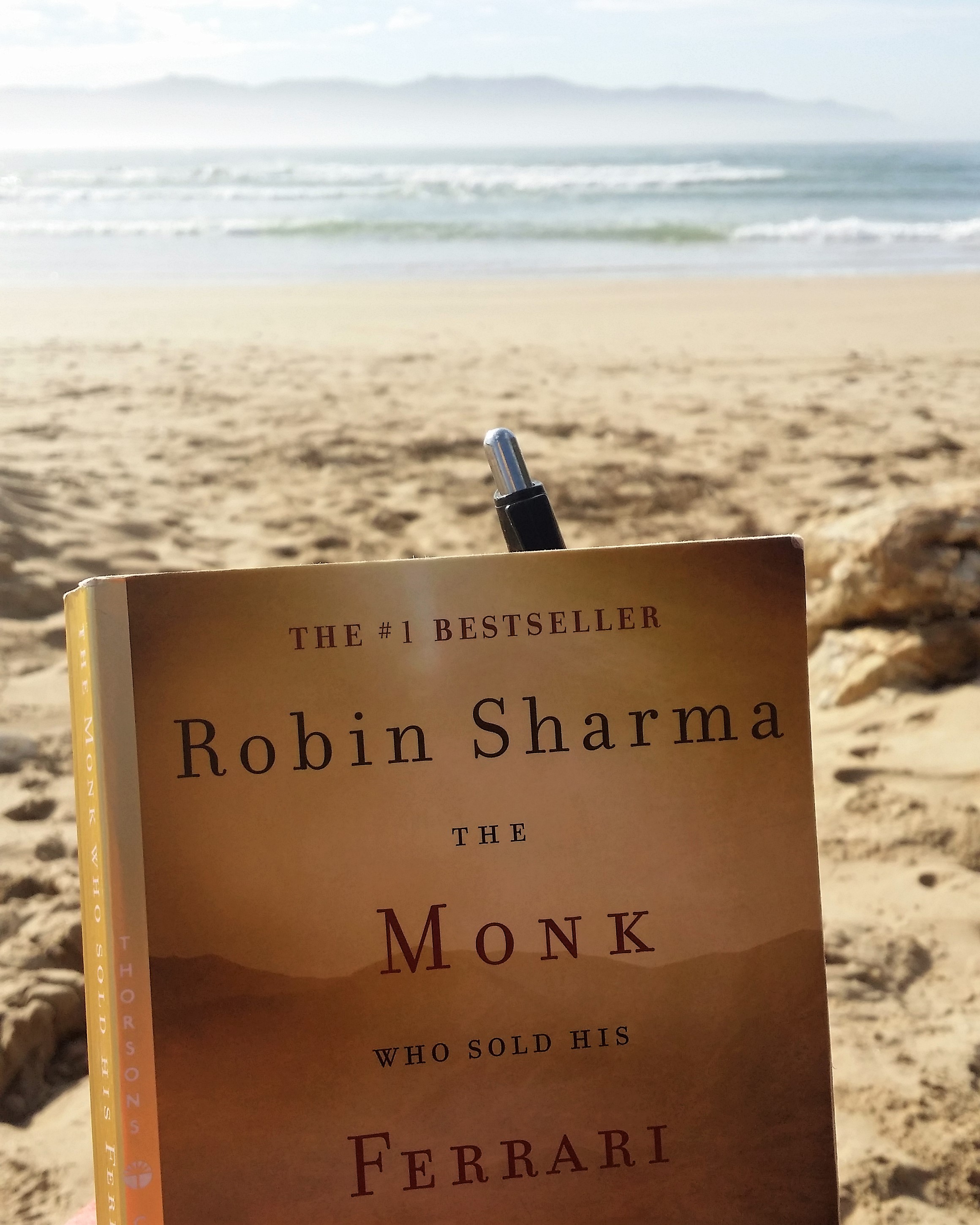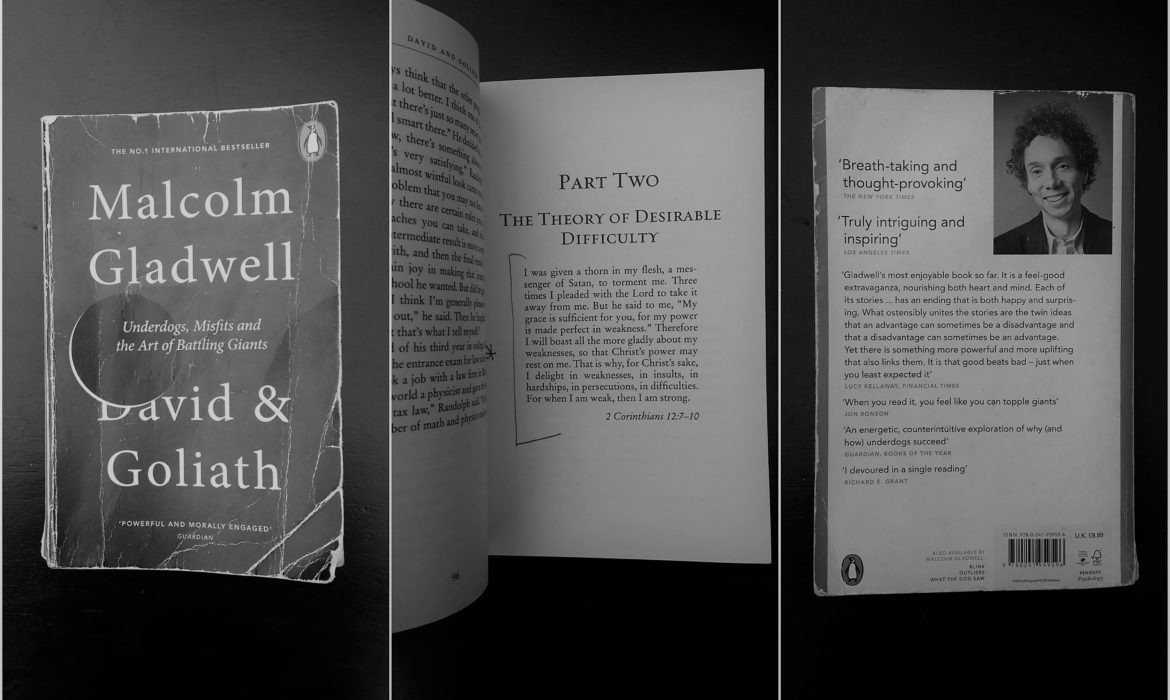Lately I have read the stunning book – “The Monk who sold his Ferrari”. It is really one of those books that you need to read. It is liberating, full of insights and also very challenging. The thing I like most about the book is that it shares important life-principles that every person on this planet can benefit from. These principles and values are uniquely described and will ensure that your life will be more than the defined “normal”.
If you have not read the book and want to read the book please note that the following will definitely have some spoilers.
From a Christian point of view some things in the book could be criticised. The entire setting from a monk’s perspective could be seen as somewhat “new age”. I can just see how a conservative viewpoint can disapprove of the outline and the philosophy in this book. The “Sages of Sivana”, a monk travelling to a place of roses and some of the techniques could be seen is as weird, not biblical and extremely odd. However, I urge you not to neglect or reject the book because of this.
My sister is a national athlete and she recently explained to me the importance of principles. To give an example she used as well we can look at the law of gravity. If a believer will jump off the bridge thinking that he will not die, he is an ignorant believer. The law of gravity is applicable to all human beings. Non-believers and believers will die if they jump off a bridge high enough. My sister is one of those athletes who run for her faith in Jesus and give thanks to Him in times of success and failure. However, she is not oblivious to the fact that there are better runners than her that are non-believers. She can’t run for free, she also needs to work hard, train hard and do things that athletes do to win. A basic value or principle will have an influence and will bear fruit if you are a believer or not. You will see that not all believers are successful and you will also see that many successful people are non-believers. Whether you believe in these spiritual principles or not they will apply to you.
In the book Robin Sharma used a “mystical fable” to emphasize and describe seven “virtues”. These virtues are crucial and effective life-tips, principles and values that will add to an enriched life. It is amazing how each principle could be linked to the Christian worldview and how each one of them is in the Bible, in the Word of God.
Not one of these virtues is contradicting to God’s word and that is why they will bear fruit.
Virtue #1 – Your mind and your thoughts
I loved this chapter and while reading this chapter Robin really challenged me as the chapter focusses on the importance and influence of thoughts. “If you hope to make remarkable improvements in your outer world you must first start within and change the caliber of your thoughts”. It is such a basic and true concept – “the quality of your life is determined by the quality of your thoughts”.
In the Word of God you will also see how important every thought and the way we think is to Him. I love the amplified version of Romans 12:2 “And do not be conformed to this world [any longer with its superficial values and customs], but be transformed and progressively changed [as you mature spiritually] by the renewing of your mind [focussing on godly values and ethical attitudes], so that you may prove [for yourselves] what the will of God is, that which is good and acceptable and perfect [in His plan and purpose for you]”. Here you will see how Paul reminded the Roman church to constantly change the way they think in order to be transformed. The monk also made it clear throughout the book that if you want to see real transformation and improvement in your life you need to totally change and improve your precious thoughts daily.
This chapter also emphasized a few techniques. One technique I want to highlight is “The Heart of the Rose”. This technique is used to be silent, to meditate and to cleanse your mind of all things so that your mind “will grow strong and disciplined”. Sitting and concentrating on a rose will be very difficult for me. I do however believe that quiet times are crucial and much needed especially in this information generation.
Often Christians will say to one another; “Be still and know that He is God” (Psalm 46:11). How often do we actually go to a place where we can just be still for a while? Again I agree with the monk as “true stillness is something foreign and uncomfortable” for our generation. How will we be able to renew our minds daily if we don’t service our minds with the silence, stillness and peace that it needs?
Please go and read 1 Kings 19 again where Elijah could not hear God’s voice in the great and powerful wind. He could not hear God’s voice during the earthquake and he could not hear God’s voice in the blaring fire. Only after the storms, Elijah got to hear God’s whisper when the winds were calm. If we want to hear God’s crucial whisper and if we want to renew our thoughts daily we need to start and take stillness and silence times seriously.
Ponder about Jesus and ensure that you start or end your day in silence so that it will give you the strength that you need.
Virtue #2 – Follow your purpose
“The purposes of a person’s heart are deep waters, but one who has insight draws them out” (Proverbs 20:5). There is a divine calling on your life and you can either let it slip through your fingers or go on an exceptional expedition with God to discover it.
Unfortunately teachings about purpose are one of those things that Christians hear often, but don’t act on regularly. There are obviously a few reasons why. I would say that the two main reasons are comfort-zone and fear of failure. It is saddening as we have such an important role to play on this planet, but somehow we get stuck in the comfort-zone of ‘safe’ Christianity. We think that if we go to church now and then and smile to a stranger now and then that we are aligned with the purpose of God. No, no and no… We just learned in the first chapter that we need to attend to the way we think. Now we need to start and think differently about the purpose of our lives and why we are on this planet in the first place.
C.S Lewis said; “It would seem that Our Lord finds our desires not too strong, but too weak. We are half-hearted creatures, fooling about with drink and sex and ambition when infinite joy is offered us, like an ignorant child who wants to go on making mud pies in a slum because he cannot imagine what is meant by the offer of a holiday at the sea. We are far too easily pleased.”
I know you have heard this so many times so that the concept is like a watered-down, semi-motivational, tedious piece of knowledge. But please don’t see it like that. God does have a unique plan for your life, he does have a purpose for your life and He made you for a very specific and beautiful reason.
I have worked for a semi-governmental institution a while back. Sometimes there was too many people appointed to work on one project and then some individuals were left with nothing or very little to do. They were like purposeless wanderers wasting precious air in the beginning and then later they got used to the Facebook and five tea breaks on one day. They still got the payslip each month so it was an easy thing to get used to. After 5 or 10 years they will look back at their lives and the purposeless-feeling will get to them. “The secret of success is constancy of purpose”. Without purpose we are absolutely nothing and the brilliant monks also knew this.
I have a very close friend who started her walk with God when she heard and truly understood that God really does have a plan for and purpose with her life. The verse that is reminding her of this truth constantly is the very well-known and special verse in Jeremiah 29:11 “For I know the plans and thoughts that I have for you,’ says the Lord, ‘plans for peace and well-being and not for disaster to give you a future and a hope.”
Virtue #3 – Never-ending improvement
A sad and horrible fact is that most athletes do not get the satisfaction they thought they were going to get after that “gold medal”. You hear of athletes going into a depression and starting to do weird no-sense things after they have reached their peaks. This happens because they have that very painful question in their hearts; “What now?”… Suddenly there is no more purpose and no more reason to get up in the morning. The thing is that you can’t stop at the “gold medal”, you have to find purpose beyond that “gold medal” and you need to never stop until the day you die. Get purpose in the everyday life and not just in the significant moments of life.
I did not tell anyone this when I was in high school, but the only goal I wanted to reach from the first day of high school was to be head cheerleader when I reach Matric. I did not care about swimming, biology or anything else. I was very social and purposefully loud so that I can be that chosen head cheerleader one day. It worked out perfectly for me – I was head cheerleader and had an absolute blast doing it. When the athletic season was over they did not need the cheerleaders anymore and I remember the rest of the year being extremely bored. I missed it to shout, scream and dance in front of the entire school daily. I needed to find a new goal, I needed to find a new dream and most importantly I needed some serious improvement in other areas of my life.
“Change is the most powerful force in our society today. Most people fear it, the wise embrace it.” Robin emphasized in the “Monk who sold his Ferrari” that courage will be crucial during these changing periods and never-ending improvements – “Courage was a quality everyone could cultivate and one that would pay huge dividends over the long run”. He also focussed on the vital influence of fears – “…when you conquer your fears, you conquer your life”. Let me remind you of what God told Joshua when Moses died. It was Joshua’s turn to lead the people and God said; “Have I not commanded you? Be strong and courageous. Do not be afraid; do not be discouraged, for the Lord your God will be with you wherever you go.” (Joshua 1:9).
Furthermore this chapter shared 10 “rituals” of radiant living. If you have not read it, please do yourself a favour. If you have read it, go and read it again. It is basic life-tips to help you to always improve and progress. Again not one of these suggestions is contradicting to God’s word and you will benefit from them as they are extremely practical.
Virtue #4 – Discipline and self-control
Obviously you will not be able to apply these fancy yet practical principles without Godly values such as self-control and discipline. In the book of Hebrews, chapter 12 you will see that there is a section titled “Do not grow weary” (ESV) and here the author focussed on the significance of discipline and besought the church to not “grow weary”. “For the moment all discipline seems painful rather than pleasant, but later it yields the peaceful fruit of righteousness to those who have been trained by it” (Hebrews 12:11).
Self-control is one of the fruits of the Holy Spirit (Galatians 5:23) and therefore we will grow with self-control if we walk the pace with God. I know this is not easy at all and it will require a lot of willpower as the monk also described. But remind yourself to the clearly described principles and qualities in 2 Peter 1:5-9 (NIV) – “…make every effort to add to your faith goodness; and to goodness, knowledge; and to knowledge, self-control; and to self-control, perseverance; and to perseverance, godliness; and to godliness, mutual affection; and to mutual affection, love. For if you possess these qualities in increasing measure, they will keep you from being ineffective and unproductive in your knowledge of our Lord Jesus Christ, but whoever does not have them is near-sighted and blind, forgetting that they have been cleansed from their past sins. This is one of those scriptures that you need to think and ponder about.
Virtue #5 – Respect your time
After attending University people often asked me what my most valuable lesson was during 4 years of being a student. People will ask fancy marketing questions and will try to be all philosophical about marketing. After a year in the “real” world I started to treasure things I really learned while being a student. Today I will say the two most valuable things I learned as a student was firstly self-discipline (because nobody is going to nag you to study and if you don’t want to waste money you have to sit and study) and secondly and most importantly I would definitely say that I leaned to manage my time beautifully.
I don’t want to be harsh, but I don’t wait longer than 15 minutes for a client. I do have colleagues that disagree with me as they believe I might lose good business. I had a discussion with my manager the other day and we talked about the 80/20 principle (also explained by the monk) – “80 percent of the results you achieve in your life come from only 20 percent high-impact activities that occupy your time”. Seriously considering this I would rather have 20 good clients and spend decent time on them and ensure long-term relationships than having 80 clients, not paying, moaning and wasting my “most precious commodity”, which is time. Design a “holistic system that could make all areas of your life more balanced and fulfilling”.
Let’s have a look at Psalm 90. According to the Amplified this Psalm is credited to Moses, who is interceding with God to remove the curse which made it necessary for every Israelite over twenty years of age (when they rebelled) to die before reaching the promise land. In Psalm 90:12 the value of time is clear if you see how Moses prays – “So teach us to number our days that we may get a heart of wisdom”. Moses knew with wisdom that every day mattered and that time is a “non-renewable resource”.
Virtue #6 – Selflessly serve others
We already discussed the importance of an enriched life guaranteed through purpose. Every “purpose” will in some way help, assist, encourage or support others. Whatever you do out there it will add to the world being a better place if you do what you do passionately and selflessly. “Quality of your life will come down to the quality of your contributions”.
Charlotte Gambill recently shared a very timely message at the opening night at the ‘#She conference’ in Pretoria, South Africa called “Set her up to win”. Her message was extremely real, true, courageous and much needed. I was literally crying throughout the entire message as it is something so dear and close to my heart. Her message did just that what you told us to do; it encouraged us. Charlotte reminded us to set one another up to win… To equip and to encourage, to have the Naomi and Ruth attitude and in other words to always ask; “How can I help?” Ruth told Naomi; “Where you go, I will go. Your people are my people…” Her commitment was astonishing. Will we be able to give this commitment to God and to God’s plan? “Lord, where you go, I will go. Lord, your people are my people”(Ruth 1:16).
We need to defeat the division in our countries and in our churches and the only way doing that is to share favour. We will be able to beat the division if individuals will actually go out there and set others up to win. It is not about my win, it is about OUR win. So I am asking everyone to encourage, equip, share, love, help, influence, impact and inspire those around you. Otherwise all and everything will be for noting. “Start seeing yourself as part of the collective”.
Virtue #7 – Live in the present
“When I admire the wonder of a sunset or the beauty of the moon, my soul expands in worship of the Creator” (Mahatma Ghandi in The monk who sold his Ferrari).
Please read the very beautiful Ecclesiastes 3:1-9 (Amplified); “There is a season (a time appointed) for everything and a time for every delight and event or purpose under heaven:
A time to be born and a time to die, a time to plant and a time to uproot what is planted. A time to kill and a time to heal, a time to tear down and a time to build up. A time to weep and a time to laugh, a time to mourn and a time to dance. A time to throw away stones and a time to gather stones, a time to embrace and a time to refrain from embracing. A time to search and a time to give up as lost, a time to keep and a time to throw away. A time to tear apart and a time to sew together, a time to keep silent and a time to speak. A time to love and a time to hate, a time for war and a time for peace.
Furthermore also read Ecclesiastes 1:11&12 that also summarise a few things mentioned throughout “The monk who sold his Ferrari”. “He has made everything beautiful and appropriate in its time. He has also planted eternity [a sense of divine purpose] in the human heart [a mysterious longing which nothing under the sun can satisfy, except God]—yet man cannot find out (comprehend, grasp) what God has done (His overall plan) from the beginning to the end. I know that there is nothing better for them than to rejoice and to do good as long as they live.”
This is the day which the Lord has made; Let us rejoice and be glad in it (Psalm 118:24, ESV).
Acknowledgements;
- Amplified Bible AND English Standard Version (ESV)
- The monk who sold his Ferrari by Robin Sharma
- Set her up to win by Charlotte Gambill
- Also go and have a look at 6 non Christian books that will inspire your faith by Frank Powell









